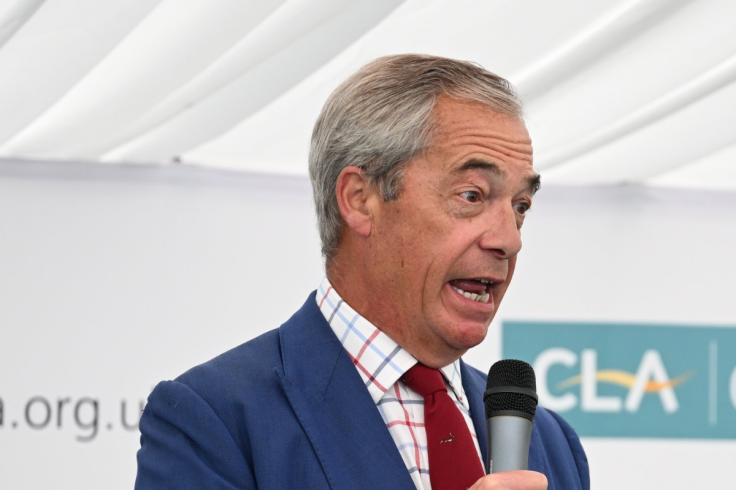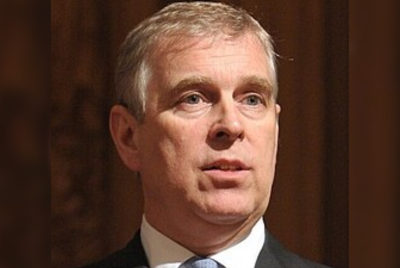Washington to Westminster: US Deniers Steer Nigel Farage Climate Agenda, Risking £200bn Green Sector Collapse
Heartland's UK director, Lois Perry, has claimed the climate emergency is a 'scam', aligning with Farage's scepticism

US climate deniers from the Heartland Institute are influencing Nigel Farage's Reform UK party, pushing a sceptic agenda that threatens Britain's net zero targets and the booming green economy. In 2025, Farage's ties to these American groups risk derailing UK climate policy, amid warnings of economic fallout from abandoning renewable investments.
As Reform UK gains traction, the potential £200 billion ($306.84 billion) collapse of the green sector looms, endangering jobs and growth in low carbon technologies.
US Climate Deniers Forge Ties with Farage's Reform UK in 2025
The Heartland Institute, a prominent US think tank known for denying human-caused climate change, launched its UK-EU branch in December 2024, with Nigel Farage attending the event. By January 2025, Farage attended the official launch event alongside former Prime Minister Liz Truss and Conservative MP Andrew Griffith, where the group promoted views labelling CO2 as non-polluting.
Heartland's UK director, Lois Perry, has claimed the climate emergency is a 'scam', aligning with Farage's scepticism. Farage, Reform UK's leader, has repeatedly questioned climate science. In February 2025, he told the Alliance for Responsible Citizenship conference that sunspots and volcanoes impact the climate more than human CO2 emissions, admitting 'I'm not a scientist'.
This stance echoes Heartland's playbook, which has received funding from ExxonMobil and Republican donors. Reform UK now hosts Heartland at its September 2025 conference, alongside Net Zero Watch, amplifying anti-climate voices.
Farage's Scepticism Threatens 2025 Green Economy Growth
Reform UK's manifesto calls for scrapping net zero targets, taxing renewables, and boosting fossil fuels, directly challenging the UK's 2050 climate goals. In April 2025, Farage declared on BBC Radio 4 that carbon emission are leading to climate change, dismissing UK emissions' role despite IPCC evidence of global human impact. Energy Secretary Ed Miliband labelled this 'nonsense and lies', warning it undermines progress.
The party's policies risk stalling investments in offshore wind and electric vehicles, key to the low carbon economy. Official data shows the UK's Low Carbon and Renewable Energy Economy (LCREE) reached £67.5 billion ($91.2 billion) in turnover by 2023, with estimates projecting £200 billion ($306.84 billion) total value by 2025 including supply chains and jobs.
Over 430,000 green jobs exist, but Farage claims net zero causes 'industrial massacre'. In March 2025, he attacked the Climate Change Committee for suggesting reduced meat consumption, prioritising defence spending over climate action.
£200bn ($306.84bn) Green Sector Faces Collapse from Denial Policies
Abandoning net zero could trigger a £200 billion ($306.84 billion) green sector collapse, per 2025 Climate Change Committee projections, as investments flee to compliant nations. The environmental goods and services sector (EGSS) hit £103 billion ($158.02 billion) in 2022, with 2025 updates showing 15% growth in renewables amid heatwaves and floods.
Yet Reform's fossil fuel push ignores risks: the Climate Change Committee warns 39% of 2030 emission cuts lack credible plans, exacerbated by scepticism. In July 2025, Farage headlined a Tufton Street event with the Global Warming Policy Foundation, calling net zero 'act of self harm' that raises bills.
This mirrors US deniers' tactics, but UK voters worry: 68% in Farage's Clacton seat fear climate impacts, despite his denial. Clacton faces high flood risks from sea level rise, per DeSmog.
Verified X post from @wideawake_media on 8 March 2025: 'The push to Net Zero is literally de-industrialising Britain. Nigel Farage: And we're not reducing carbon emissions. We're just exporting carbon emissions to India, and other places like that. 'The more wind turbines we build, the more expensive our electricity is.
"The push to Net Zero is literally de-industrialising Britain."
— Wide Awake Media (@wideawake_media) March 8, 2025
Nigel Farage: "And we're not reducing carbon emissions. We're just exporting carbon emissions to India, and other places like that."
"The more wind turbines we build, the more expensive our electricity is." pic.twitter.com/4ciktQC09O
This post, with 995 likes, highlights Farage's agenda, shared by a verified account covering climate issues.
Without action, £11.6 billion ($17.8 billion) in international climate finance risks diversion. Policymakers must counter this to safeguard jobs and resilience.
© Copyright IBTimes 2025. All rights reserved.





















